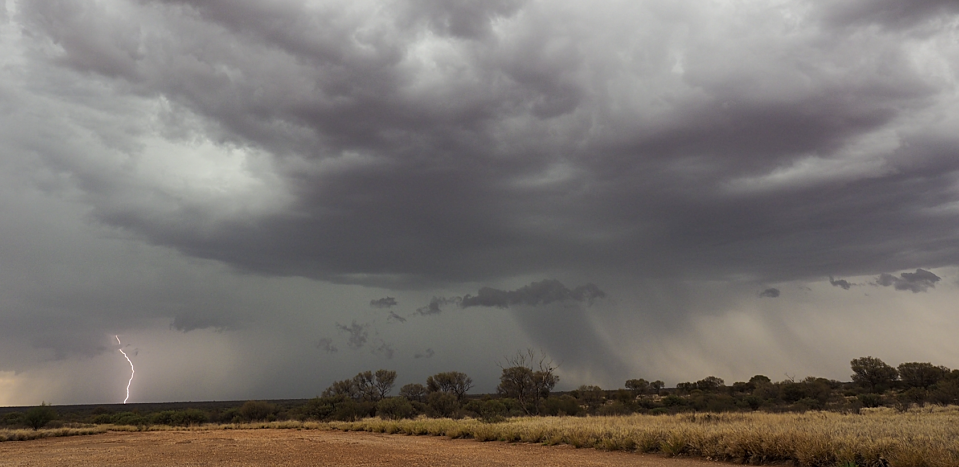
An election surprise, a Press Club debate, and investment inertia: 2025 in review
Posted on 10 Dec 2025
What a year 2025 has been, particularly at a national level where the Parliament and politics as we…
Posted on 15 Oct 2024
By David Crosbie

The Australian Tax Office new reporting requirements for not-for-profits are causing a great deal of pain for the sector, says Community Council for Australia CEO, David Crosbie.
This week’s commentary takes aim at the Australian Tax Office’s (ATO’s) new requirements for not-for-profits, but it’s important I preface that argument by stressing that the ATO has a very important role in Australia to ensure fairness across our tax system.
Most of us support the ATO in this role. In my case, I actively engage in consultation mechanisms including the ATO Not-for-Profit Stewardship Group and the Australian Charities and Not-for-profit Commission Advisory Board. In all my interactions with the ATO, I have been encouraged to speak with senior staff and raise concerns, which I do regularly.
I note my support for the ATO at the outset of this article, because what follows is largely an argument that the ATO has caused massive unnecessary disruption across the charities and not-for-profit (NFP) sector. The ATO is out of its depth when it comes to understanding the value and the work of our sector.
Most of what follows, draws heavily on the submission that the Community Council for Australia (CCA) has provided to the Senate on this issue.
Despite my respect for the ATO, that body is creating a great deal of pain for the sector.
The policy of requiring every self-assessed income tax exempt NFP to provide an annual return was always framed around risk, that is, the risk of lost government revenue.
Yet the risk of that lost revenue from 140,000+ NFPs with an active ABN is, at best, negligible. Less than 20% of these organisations register for GST, less than 10% pay payroll tax, and 80% currently use no professional services in relation to tax. What we know about these groups suggests the vast majority are volunteer run, and have a turnover of less than $50,000. We are mostly talking about micro-organisations and small community groups.
No evidence has been produced to indicate a pattern of tax avoidance amongst these organisations.
The requirement for every self-assessed income tax exempt NFP to complete an annual assessment form is not just about filling in a form and sending it to the ATO. The form must be completed on-line, and only by the nominated responsible person as listed on the Australian Business Register, and only using a MyGov level 2 security clearance.
All of these requirements has made the process unnecessarily complex and daunting for many small NFPs. I should know, I have tried to complete a return.
Key sector groups – including the CCA – have supported annual returns for NFPs on the basis those returns meet an appropriate threshold that is commensurate with the level of risk. For example, setting a threshold of $1-5 million turnover, could justify the resources and effort required across our communities and within the ATO, if it is to invest time and effort into pursuing any possible tax avoidance.
I also believe the organisation collecting annual returns – initially from larger NFPs – should be the Australian Charities and Not-for-profits Commission (ACNC), not the ATO. The ACNC Review Panel made the same recommendation in 2018.
The ACNC has for more than ten years collected annual returns from all charities, achieving a world-leading level of voluntary compliance from charities across Australia.
The ACNC has the skills, expertise, the appropriate portals and data management. Distributing and collecting these returns is an extension of its core role of positively engaging with a very diverse NFP sector.
"If self-assessed income tax exempt organisations get their self-assessment wrong, they could find their organisation facing a retrospective debt going back years."
While the ATO may strive to offer appropriate levels of support and engagement with NFPs, the task they are being asked to complete is so distant from its core business, that it presents real challenges.
It’s the wrong organisation to be trying to positively engage with thousands of small NFPs across Australia that have no ongoing relationship with the ATO.
It’s the wrong organisation to be collecting and analysing information about the purpose of these organisations, their activities, and their role in the community.

It’s also the wrong organisation to be encouraging all NFPs to keep good records and practice sound governance.
In practice, this measure mostly targets thousands of small volunteer-run organisations by imposing significant new obligations that are likely to produce no significant benefit to anyone.
This measure also imposes a new risk on every small NFP in Australia. If self-assessed income tax exempt organisations get their self-assessment wrong, they could find their organisation facing a retrospective debt going back years.
This risk, however remote, can and does create a chill factor for many NFPs. Even with no likelihood of owing the ATO money, many NFPs are seeking professional support to complete the return. It’s costing many small communities money and time, and creating an intimidating imposition on organisational administration.
Given the relatively small budgets of most NFPs across Australia, the only way the costs of these additional professional services can be met is through increased income-raising activities or reduced services to the community.
At a time when community groups are desperate to engage volunteers, this measure, requiring volunteer administrators to engage with the Australian Business Regiter (ABR), MyGov and the ATO to complete an annual return, makes volunteering for roles in community organisations less attractive.
Thousands of calls have already been received by the ATO help lines for this issue, and thousands of additional applications for charitable status have been made to the ACNC, yet no additional allocations were made in the federal Budget.
This suggests to the CCA that the ATO might have thought the additional costs involved in this measure would be met through the additional taxation revenue collected. If so, the CCA would like to know how much the anticipated additional taxation is and how was that calculated? If not, why were there no additional provisions allocated to implementing this measure?
The Senate Inquiry through the Senate Economics Committee is due to report by the end of this month.
The CCA and many other groups will be hoping this inquiry finally provides some meaningful answers to some fairly obvious questions: Why this measure is in place?
Why there is no threshold commensurate with the level of risk? Why it was set up with such a complex and difficult process? What the real costs of this measure are within the government and the ACNC? How much the ATO believes it will make in additional revenue?
And what is the estimated ongoing cost in community organisation time and money having to be spent on additional administration, accountants and lawyers?
All these questions have already been asked, all these concerns have already been raised, and all these concerns have been ignored or dismissed.
Perhaps the biggest question for the Senate Inquiry to answer is why are the concerns of our sector not taken seriously?
David Crosbie has been CEO of the Community Council for Australia for the past decade and has spent more than a quarter of a century leading significant not-for-profit organisations, including the Mental Health Council of Australia, the Alcohol and Other Drugs Council of Australia, and Odyssey House Victoria.

Posted on 10 Dec 2025
What a year 2025 has been, particularly at a national level where the Parliament and politics as we…

Posted on 26 Nov 2025
Charities and not-for-profits can be outstanding advocates for their cause, their community, their…

Posted on 12 Nov 2025
Managing a charity or not-for-profit in Australia is often more complex than it may appear. On any…

Posted on 29 Oct 2025
One of the most contentious debates across many areas of human services is the for-profit versus…

Posted on 28 Oct 2025
Workers in the not-for-profit sector lift up communities, care for those in crisis and do work that…

Posted on 08 Oct 2025
The cost of climate change's impact on Australian life is increasingly well documented. The…

Posted on 08 Oct 2025
The Wurundjeri Indigenous people who live in and around Melbourne understand their environment as…

Posted on 30 Sep 2025
I am proud of what Our Community, and its exceptional team, have achieved in the past 25 years. As…

Posted on 24 Sep 2025
If a business ran the government, a corporatocracy would likely emerge, prioritising profit over…

Posted on 09 Sep 2025
This has been another big week in the evolving story of tech oligarchs versus Australia, profit…

Posted on 03 Sep 2025
The problem with the NDIS is not autistic families or children, says Annabel Rattigan, a leadership…

Posted on 27 Aug 2025
It used to be that businesses could concentrate on profits, profits and profits, only playing in…